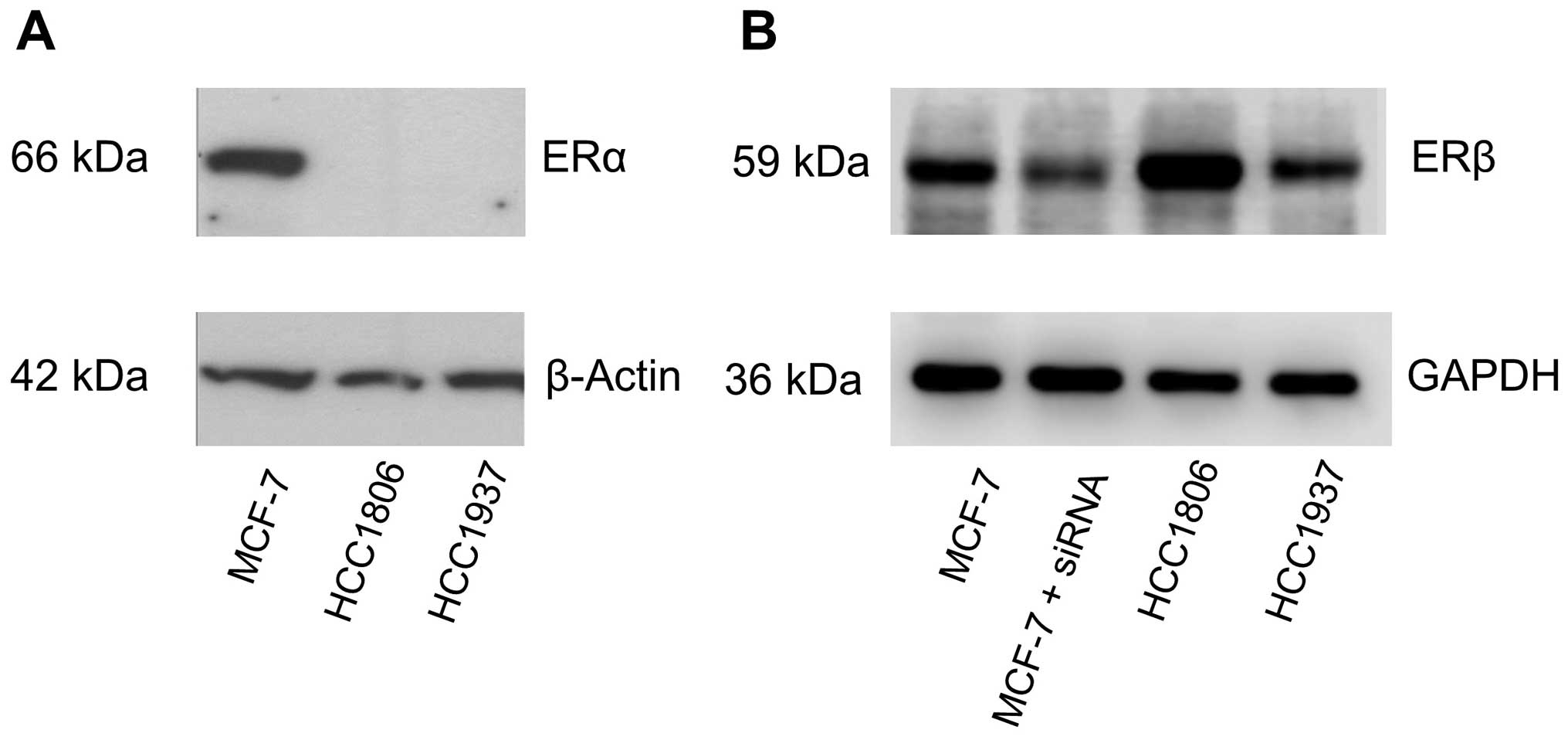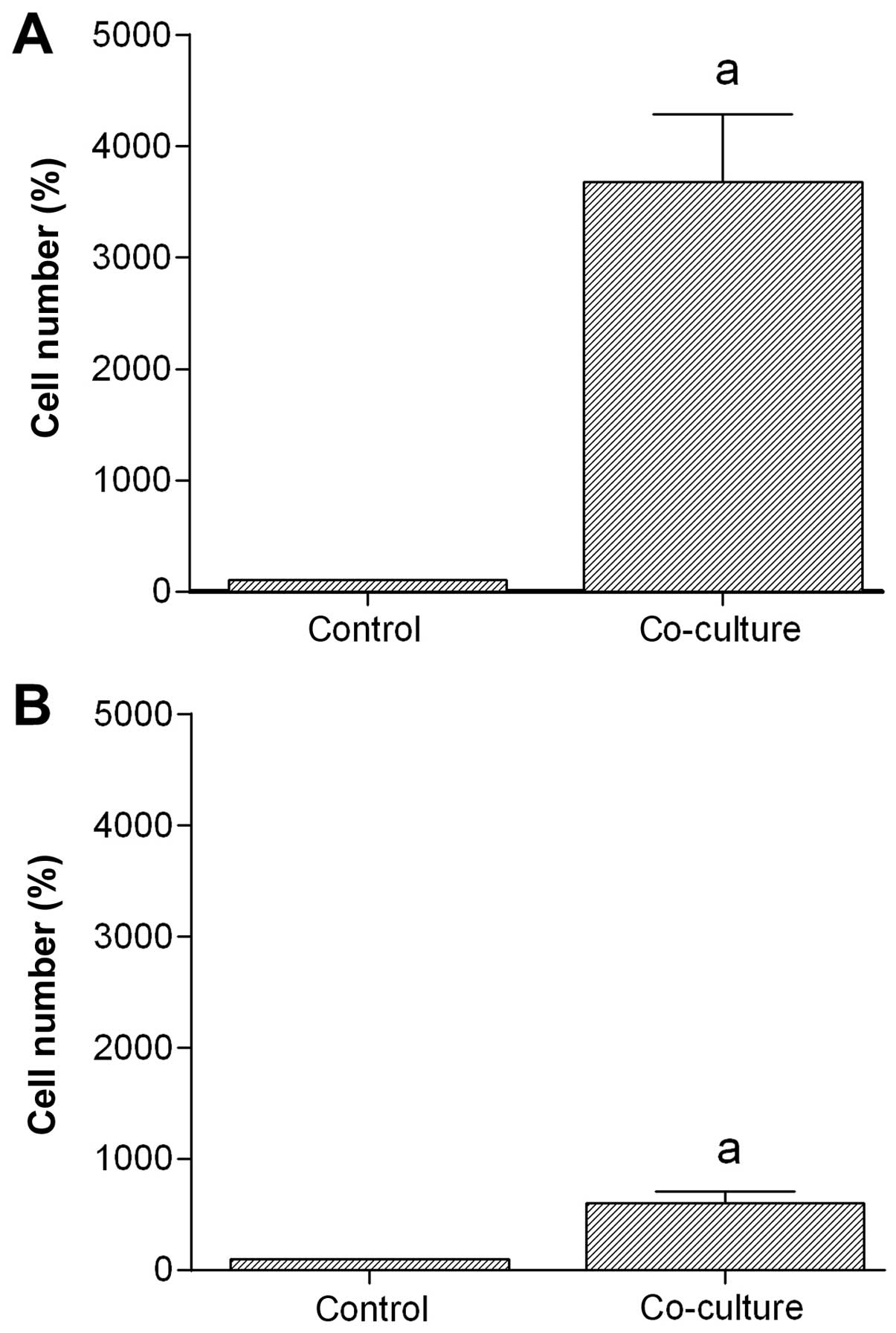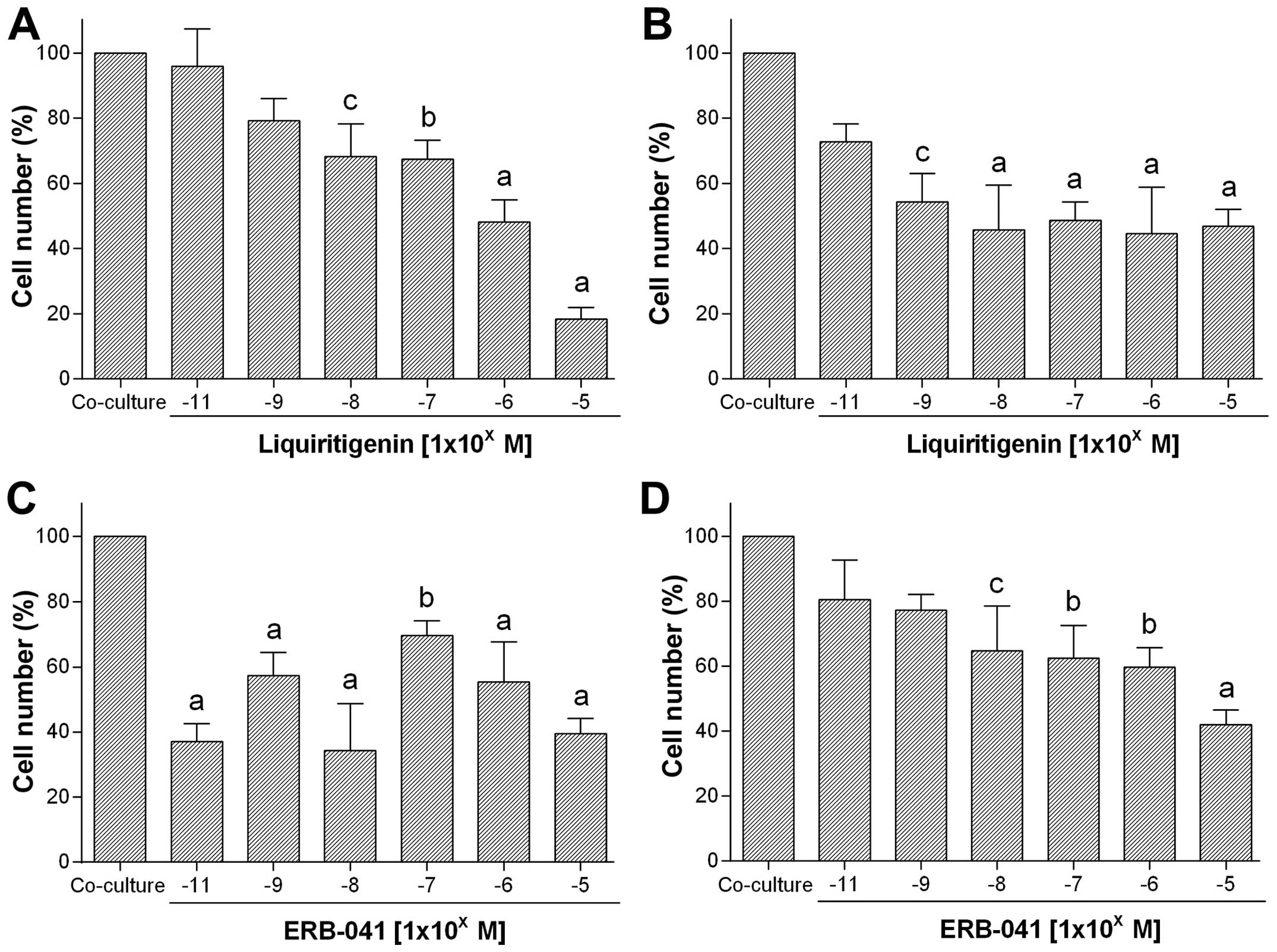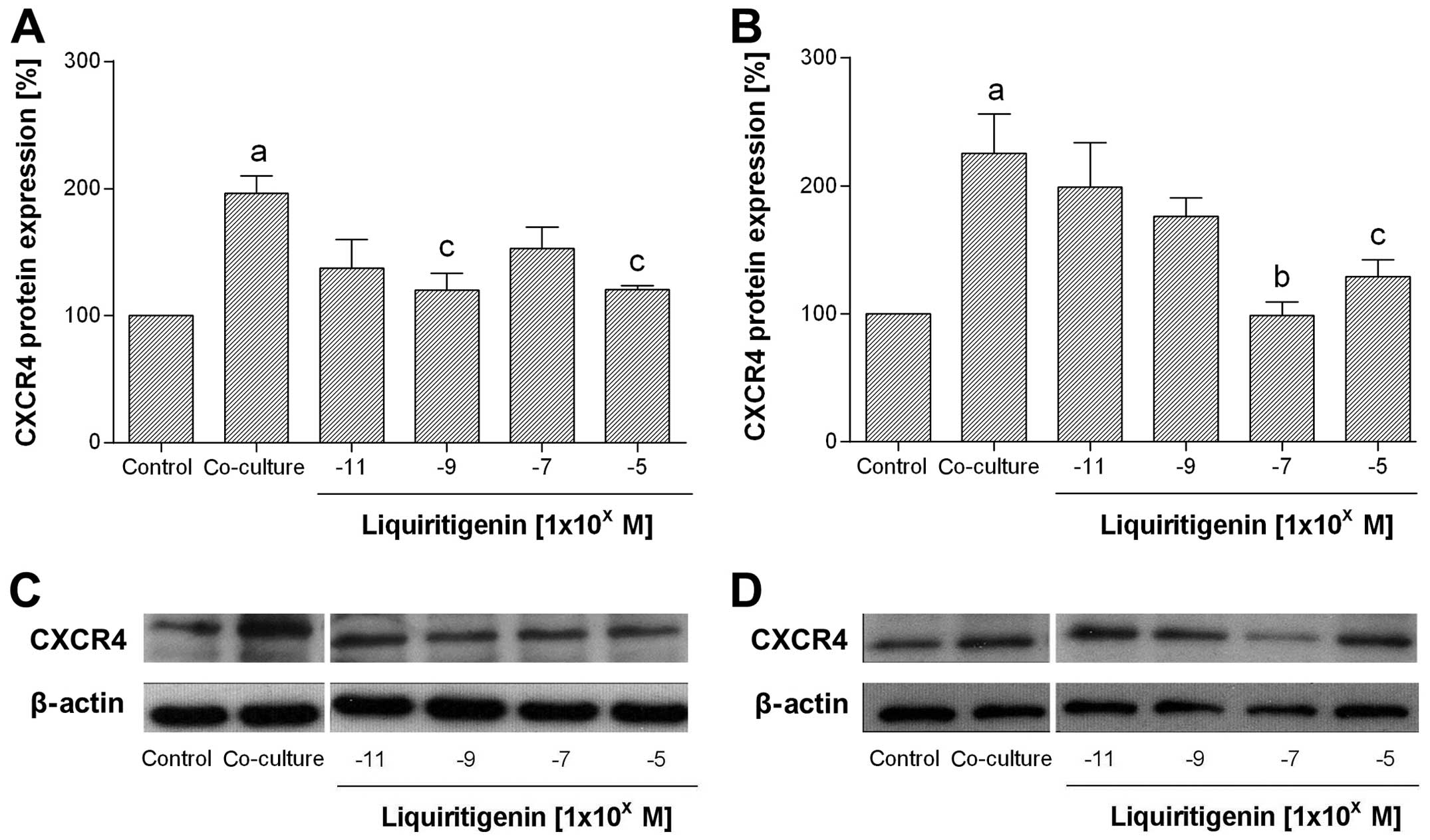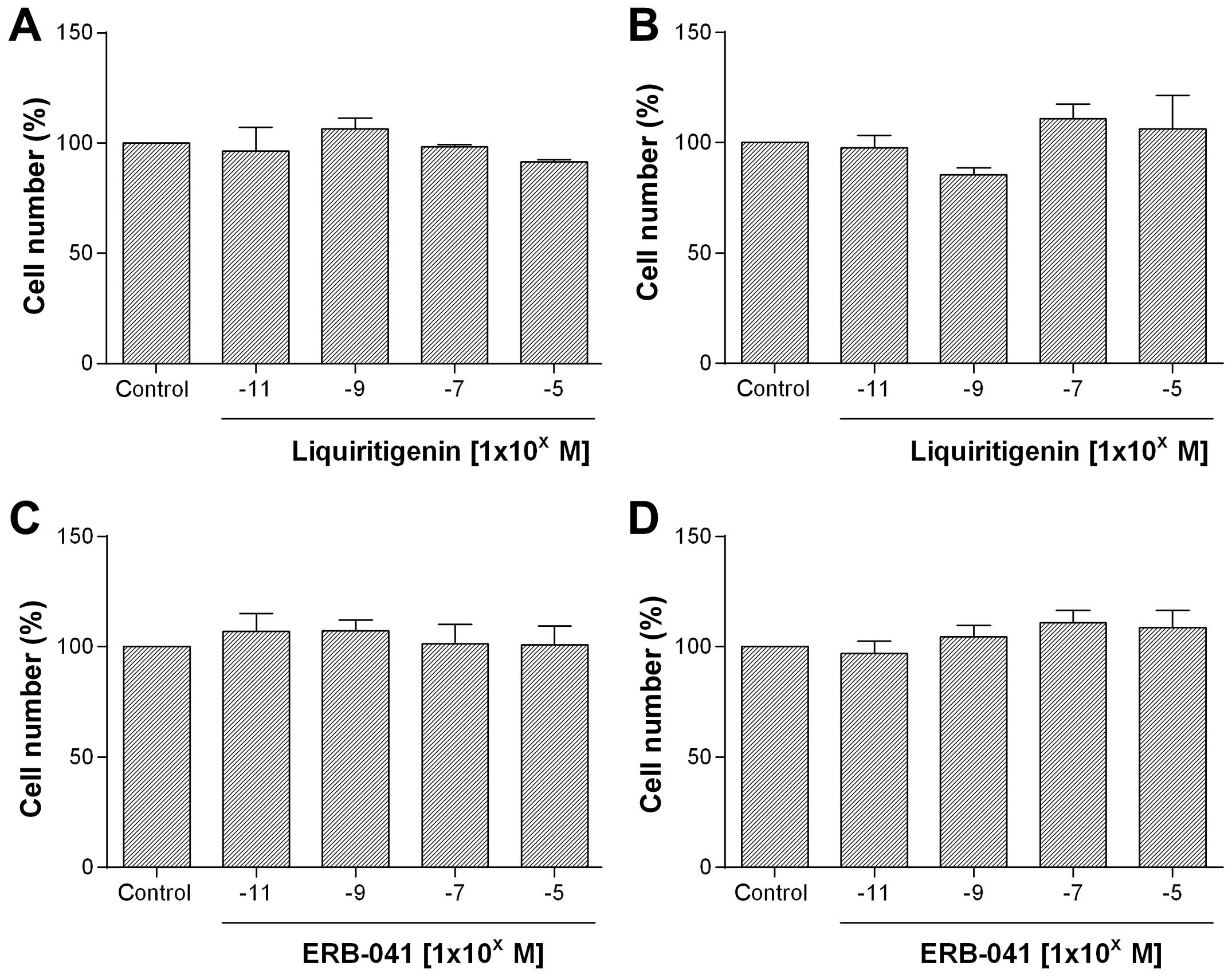|
1
|
Kim MJ, Ro JY, Ahn SH, Kim HH, Kim SB and
Gong G: Clinicopathologic significance of the basal-like subtype of
breast cancer: a comparison with hormone receptor and
Her2/neu-overexpressing phenotypes. Hum Pathol. 37:1217–1226. 2006.
View Article : Google Scholar : PubMed/NCBI
|
|
2
|
Nielsen TO, Hsu FD, Jensen K, et al:
Immunohistochemical and clinical characterization of the basal-like
subtype of invasive breast carcinoma. Clin Cancer Res.
10:5367–5374. 2004. View Article : Google Scholar : PubMed/NCBI
|
|
3
|
Bauer KR, Brown M, Cress RD, Parise CA and
Caggiano V: Descriptive analysis of estrogen receptor
(ER)-negative, progesterone receptor (PR)-negative, and
HER2-negative invasive breast cancer, the so-called triple-negative
phenotype: a population-based study from the California Cancer
Registry. Cancer. 109:1721–1728. 2007. View Article : Google Scholar : PubMed/NCBI
|
|
4
|
Lacroix M: Significance, detection and
markers of disseminated breast cancer cells. Endocr Relat Cancer.
13:1033–1067. 2006. View Article : Google Scholar : PubMed/NCBI
|
|
5
|
Tomin R and Donegan WL: Screening for
recurrent breast cancer - its effectiveness and prognostic value. J
Clin Oncol. 5:62–67. 1987.PubMed/NCBI
|
|
6
|
Schlappack OK, Baur M, Steger G, Dittrich
C and Moser K: The clinical course of lung metastases from breast
cancer. Klin Wochenschr. 66:790–795. 1988. View Article : Google Scholar : PubMed/NCBI
|
|
7
|
Selzner M, Morse MA, Vredenburgh JJ,
Meyers WC and Clavien PA: Liver metastases from breast cancer:
long-term survival after curative resection. Surgery. 127:383–389.
2000. View Article : Google Scholar : PubMed/NCBI
|
|
8
|
von Alten J, Fister S, Schulz H, et al:
GnRH analogs reduce invasiveness of human breast cancer cells.
Breast Cancer Res Treat. 100:13–21. 2006. View Article : Google Scholar : PubMed/NCBI
|
|
9
|
Olbrich T, Ziegler E, Türk G, Schubert A,
Emons G and Gründker C: Kisspeptin-10 inhibits bone-directed
migration of GPR54-positive breast cancer cells: evidence for a
dose-window effect. Gynecol Oncol. 119:571–578. 2010. View Article : Google Scholar : PubMed/NCBI
|
|
10
|
Lindberg K, Ström A, Lock JG, Gustafsson
JA, Haldosén LA and Helguero LA: Expression of estrogen receptor
beta increases integrin alpha1 and integrin beta1 levels and
enhances adhesion of breast cancer cells. J Cell Physiol.
222:156–167. 2010. View Article : Google Scholar
|
|
11
|
Marotti JD, Collins LC, Hu R and Tamimi
RM: Estrogen receptor-beta expression in invasive breast cancer in
relation to molecular phenotype: results from the Nurses’ Health
Study. Mod Pathol. 23:197–204. 2010. View Article : Google Scholar
|
|
12
|
Chen JQ and Russo J: ERalpha-negative and
triple negative breast cancer: molecular features and potential
therapeutic approaches. Biochim Biophys Acta. 1796:162–175.
2009.PubMed/NCBI
|
|
13
|
Sakamoto G and Honma N: Estrogen
receptor-beta status influences clinical outcome of triple-negative
breast cancer. Breast Cancer. 16:281–282. 2009. View Article : Google Scholar : PubMed/NCBI
|
|
14
|
Schmidt E, Haase M, Ziegler E, Emons G and
Gründker C: Kisspeptin-10 inhibits stromal-derived factor 1-induced
invasion of human endometrial cancer cells. Int J Gynecol Cancer.
24:210–217. 2014. View Article : Google Scholar : PubMed/NCBI
|
|
15
|
Girgert R, Emons G and Gründker C:
Inactivation of GPR30 reduces growth of triple-negative breast
cancer cells: possible application in targeted therapy. Breast
Cancer Res Treat. 134:199–205. 2012. View Article : Google Scholar : PubMed/NCBI
|
|
16
|
Mersereau JE, Levy N, Staub RE, et al:
Liquiritigenin is a plant-derived highly selective estrogen
receptor beta agonist. Mol Cell Endocrinol. 283:49–57. 2008.
View Article : Google Scholar : PubMed/NCBI
|
|
17
|
Shanle EK, Hawse JR and Xu W: Generation
of stable reporter breast cancer cell lines for the identification
of ER subtype selective ligands. Biochem Pharmacol. 82:1940–1949.
2011. View Article : Google Scholar : PubMed/NCBI
|
|
18
|
Liu Y, Xie S, Wang Y, Luo K and Cai Y:
Liquiritigenin inhibits tumor growth and vascularization in a mouse
model of HeLa cells. Molecules. 17:7206–7216. 2012. View Article : Google Scholar : PubMed/NCBI
|
|
19
|
Chaudhary SC, Singh T, Talwelkar SS, et
al: Erb-041, an estrogen receptor-β agonist, inhibits skin
photocarcinogenesis in SKH-1 hairless mice by downregulating the
WNT signaling pathway. Cancer Prev Res (Phila). 7:186–198. 2014.
View Article : Google Scholar
|
|
20
|
Samanta S, Sharma VM, Khan A and Mercurio
AM: Regulation of IMP3 by EGFR signaling and repression by ERβ:
implications for triple-negative breast cancer. Oncogene.
31:4689–4697. 2012. View Article : Google Scholar : PubMed/NCBI
|
|
21
|
Müller A, Homey B, Soto H, et al:
Involvement of chemokine receptors in breast cancer metastasis.
Nature. 410:50–56. 2001. View Article : Google Scholar : PubMed/NCBI
|
|
22
|
Chu QD, Panu L, Holm NT, Li BD, Johnson LW
and Zhang S: High chemokine receptor CXCR4 level in triple negative
breast cancer specimens predicts poor clinical outcome. J Surg Res.
159:689–695. 2010. View Article : Google Scholar
|
|
23
|
Sobolik T, Su YJ, Wells S, Ayers GD, Cook
RS and Richmond A: CXCR4 drives the metastatic phenotype in breast
cancer through induction of CXCR2 and activation of MEK and PI3K
pathways. Mol Biol Cell. 25:566–582. 2014. View Article : Google Scholar : PubMed/NCBI
|
|
24
|
Sun Y, Mao X, Fan C, et al: CXCL12-CXCR4
axis promotes the natural selection of breast cancer cell
metastasis. Tumour Biol. 35:7765–7773. 2014. View Article : Google Scholar : PubMed/NCBI
|
|
25
|
Liang Z, Yoon Y, Votaw J, Goodman MM,
Williams L and Shim H: Silencing of CXCR4 blocks breast cancer
metastasis. Cancer Res. 65:967–971. 2005.PubMed/NCBI
|
|
26
|
Li HY, Ren GS and Tan JX: The effects of
shRNA-CXCR4 on breast cancer cells migration and invasion. Sichuan
Da Xue Xue Bao Yi Xue Ban. 40:393–397. 2009.(In Chinese).
PubMed/NCBI
|















